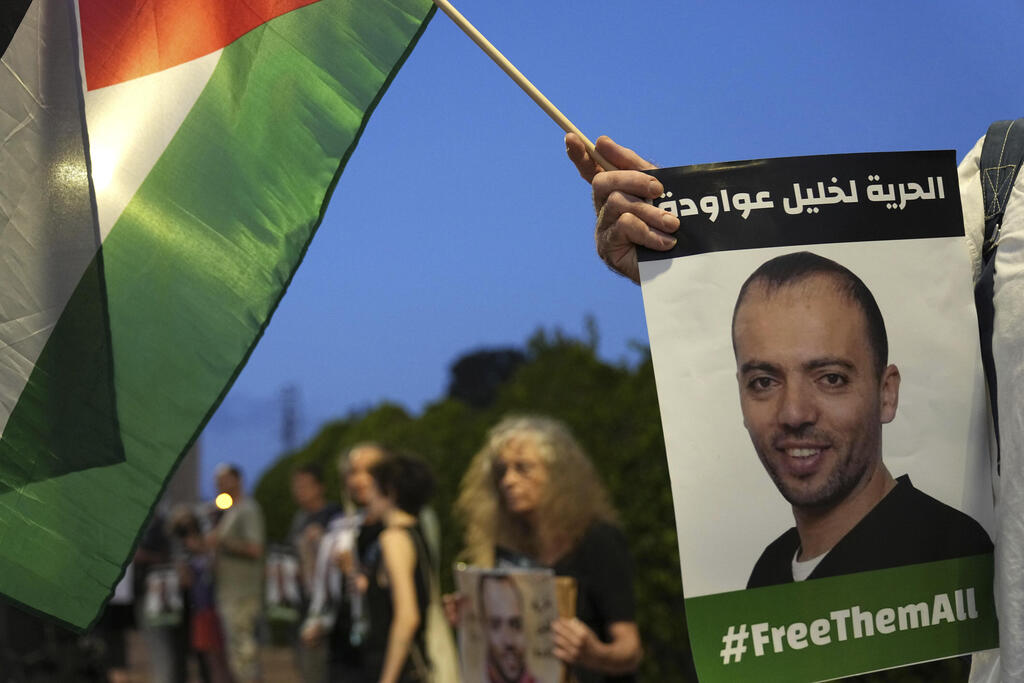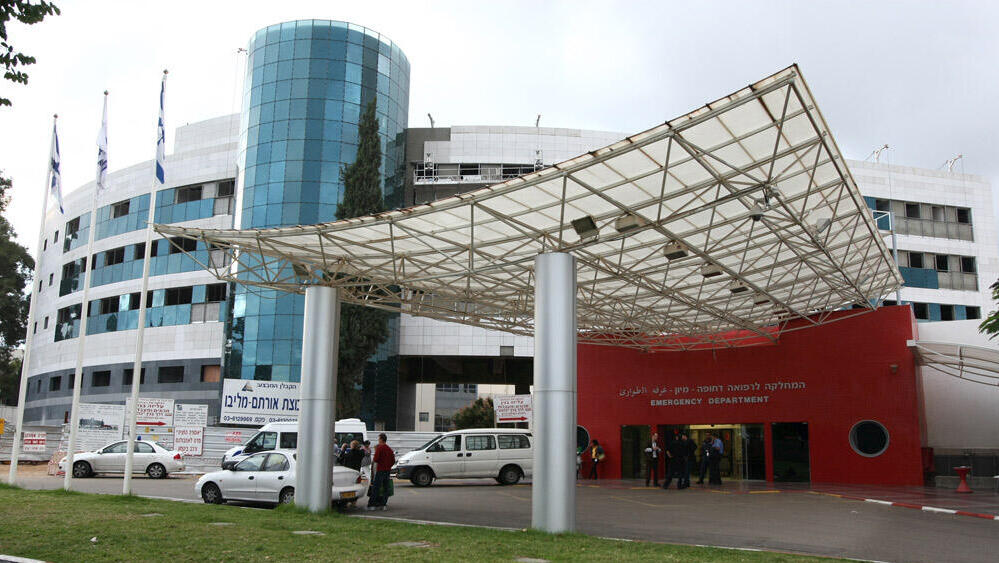Getting your Trinity Audio player ready...
A Palestinian detainee held without charge or trial by Israel will suspend his nearly six-month hunger strike after receiving a “written agreement” that he will be released in October, Palestinian officials said Wednesday.
Lawyers and physicians have warned that the Khalil Awawdeh, 40, was at risk of dying and already suffering neurological damage from the prolonged hunger strike. In recent pictures, he resembles a human skeleton, his skin tightly stretched over a bony frame.
3 View gallery


Khalil Awawdeh, at Asaf Harofeh Hospital last week
(Photo: AP / Mahmoud Illean, File)
Awawdeh was protesting being held without charge or trial in what’s known as administrative detention. Israel says administrative detention is needed to keep dangerous militants off the streets without revealing sensitive intelligence. The Palestinians and rights groups say it denies detainees the basic right of due process.
The Commission of Detainee Affairs, part of the Palestine Liberation Organization, said he had reached an agreement that would see Awawdeh released on Oct. 2, “after fighting an epic battle for which he sacrificed his flesh and life.”
3 View gallery


Protesters gather outside hospital where Khalil Awawdeh, on months-long hunger strike is treated
(Photo: AP)
Israel accuses Awawdeh of being a member of the Islamic Jihad militant group, an allegation he denies. The group has demanded his release as part of the cease-fire that ended three days of heavy fighting in Gaza earlier this month, without identifying him as a member.
Ahlam Haddad, Awawdeh’s lawyer, said this week that his client weighs 37 kilograms (around 80 pounds) and is suffering from neurological damage. He took vitamins over two weeks in June when he thought his case was being resolved but has otherwise only had water since the strike began in March, his family says.
Israel had officially suspended his arrest, but he remained in custody at an Israeli hospital.
Several Palestinians have gone on prolonged hunger strike in recent years to protest being held in administrative detention. In most cases, Israel has eventually released them after their health significantly deteriorated. None have died in custody, but many have suffered irreparable neurological damage.
Israel is currently holding some 4,400 Palestinian prisoners, including militants who have carried out deadly attacks, as well as people arrested at protests or for throwing stones. The Palestinians view all of them as political prisoners held for resisting Israel’s 55-year military occupation of territories the Palestinians want for a future state.


